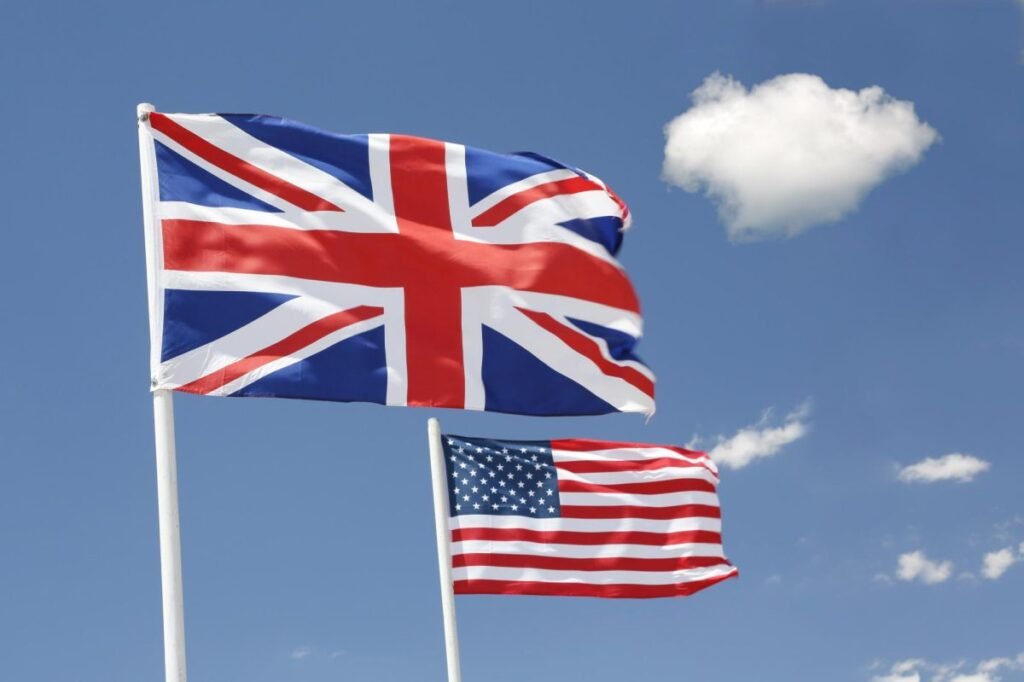Edited by Matt Waller
The trade relationship between the United States and the United Kingdom is entering a new phase, marked by both optimism over balanced economic ties and challenges brought on by escalating tariff disputes. British Business Secretary Jonathan Reynolds has recently provided key insights into how the US now perceives its trade relations with Britain—largely due to the absence of a significant trade deficit—while acknowledging that difficult issues, particularly on tariffs, still lie ahead.

A Shift in Perspective: Balanced Trade as a Foundation
Reynolds explained that one of the primary reasons the United States sees Britain differently is the balanced nature of their trade relationship. Unlike many other countries with which the US engages, Britain does not present a large trade deficit. This balance has fostered a climate of « good engagement » and productive dialogue with the Trump administration, as the US appears to appreciate the equilibrium that exists between the two nations.
The absence of a large deficit not only reinforces the stability of bilateral trade but also positions the UK as a reliable partner in a global market often marred by imbalances. However, Reynolds cautioned that while this balanced trade dynamic lays a positive foundation, it does not automatically smooth over all trade disputes.
The Impact of Trump’s Tariff Policies
Since his return to power, President Donald Trump has dramatically reshaped US trade policy by imposing or threatening high tariffs on a wide range of imported goods. His aggressive tariff strategy is aimed at protecting American industries and re-establishing the manufacturing base. Recently, Trump announced that he would introduce new 25% tariffs on all steel and aluminium imports, adding to existing duties on these key materials.
This move is designed to level the playing field for American producers, but it has also sparked significant pushback from trading partners. For the UK, the imposition of these tariffs represents a major hurdle, particularly because British steel and aluminium are vital components in the US defense sector and form a critical part of the manufacturing supply chain.
The UK’s Response: Negotiations and Strategic Consultations
In response to the new tariffs, British officials have taken proactive steps to negotiate exemptions for their industries. Business Secretary Jonathan Reynolds revealed that the UK government is actively seeking to persuade the US to exclude its steel and aluminium products from the new tariff regime. These negotiations are critical not only for protecting domestic industries but also for maintaining the broader economic relationship with the United States.
Reynolds highlighted that discussions with key US trade figures—including Mark Burnett, President Trump’s special envoy to Britain, and Kevin Hassett, the president’s top economic advisor—have been constructive. Despite the challenges, both sides appear committed to working through the disputes, even if a few contentious issues remain unresolved.
Trade Surpluses: A Matter of Measurement
An interesting aspect of the US-UK trade relationship is that both countries report trade surpluses with each other when it comes to goods and services. This apparent paradox is largely due to differences in measurement methodologies. Britain’s Office for National Statistics explains that these surpluses stem from the way trade figures are compiled, which often masks the underlying complexities of bilateral trade flows.
British Prime Minister Keir Starmer is optimistic that these balanced trade figures will work in the UK’s favor during ongoing tariff negotiations. By highlighting the strength of their trading relationship, British officials hope to secure more favorable terms that will mitigate the impact of the new tariffs.
Broader Implications for Global Trade and Supply Chains
The current US-UK trade discussions reflect larger trends in global commerce. Trump’s tariff policies, aimed at bolstering domestic production and reducing reliance on imported goods, have sown uncertainty among international businesses. High tariffs can disrupt established supply chains, drive up costs for manufacturers, and ultimately impact consumers through higher prices.
For long-standing US allies like the UK, navigating these policy shifts is particularly challenging. The need to protect sensitive industries—such as those linked to national defense and high-tech manufacturing—forces countries to strike a delicate balance between safeguarding domestic interests and preserving vital trade relationships.
The Future of Transatlantic Trade Relations
As negotiations continue, both the United States and the United Kingdom face the task of reconciling divergent economic policies with mutual benefits. The balanced trade relationship that currently exists between the two nations provides a promising basis for future collaboration. However, the persistent issues surrounding tariffs, particularly on strategic sectors like steel and aluminium, indicate that significant work remains to be done.
The outcome of these negotiations will have far-reaching consequences. A successful resolution could lead to more stable and predictable trade conditions, fostering increased investment and deeper economic integration between the US and the UK. Conversely, failure to address these issues may force both nations to rethink their trade strategies in an increasingly protectionist global environment.
Conclusion: Balancing Interests in an Evolving Trade Landscape
The evolving perspective of the United States toward its trade ties with the United Kingdom—rooted in a balanced relationship yet challenged by aggressive tariff policies—highlights the complexities of modern international commerce. While the absence of a large trade deficit offers a solid foundation, the imposition of high tariffs on critical imports underscores the need for ongoing dialogue and careful negotiation.
As both nations work toward a resolution, the broader implications for global trade, supply chains, and economic stability remain significant. The future of transatlantic trade will depend on the ability of policymakers on both sides to balance national interests with the benefits of open, mutually advantageous economic relationships.
In this shifting landscape, the United Kingdom’s proactive engagement and strategic negotiations will be key to ensuring that its economic partnership with the United States continues to thrive amid new challenges.